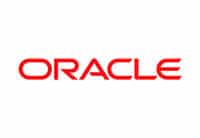The Java EE 7: Front-end Web Application Development training teaches you how to build and deploy enterprise applications that comply with Java Platform, Enterprise Edition 7 Web Profile. The technologies presented in this course include annotations, Session Enterprise JavaBeans (EJB-Lite), Java Persistence API (JPA), servlets, JavaServer Pages(JSPs), Contexts and Dependency Injection (CDI), JAX-RS RESTful web services, the Java API for WebSocket and more.
This Java EE 7: Front-end Web Application Development training helps you explore building and deploying enterprise applications that comply with the Java Platform, Enterprise Edition 7 Web Profile. Expert Oracle University instructors will help you explore annotations, Session Enterprise JavaBeans (EJB-Lite), Java Persistence API (JPA), servlets, JavaServer Pages(JSPs), Contexts and Dependency Injection (CDI), JAX-RS RESTful web services, the Java API for WebSocket and the Java API for JSON processing.
Learn To:
- Develop web-based interfaces for both desktop and mobile devices.
- Assemble an application.
- Build Java applications.
- Deploy an application into an application server (Java EE platform runtime environment).
Benefits to You
By taking this course, you’ll gain hands-on experience building Java EE web applications. You will get the chance to create web-based user interfaces using HTML5 and JavaScript along with JSPs and servlets. Web-based user interfaces will use AJAX to communicate with RESTful web services you create; data will persist using JPA and optimistic locking.
Participate in Hands-On Labs
By learning through hands-on exercises via structured labs, you’ll get a chance to explore EJB-Lite session bean components, which can be used with container-managed transactions. You’ll perform lab exercises using the NetBeans IDE and WebLogic Server.






